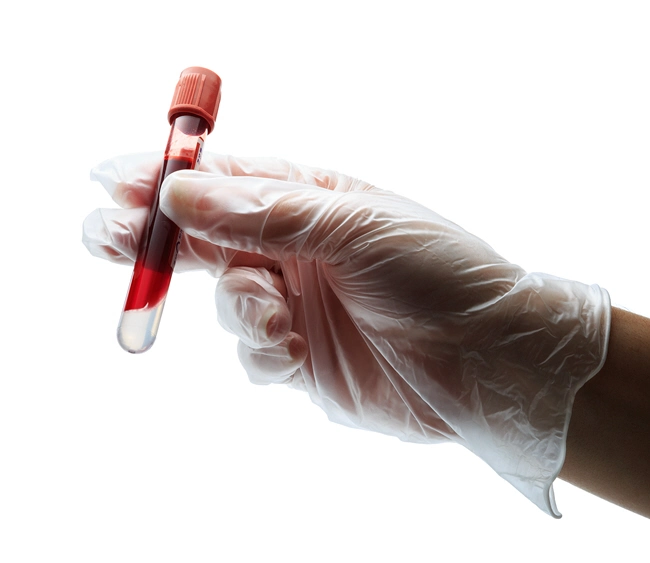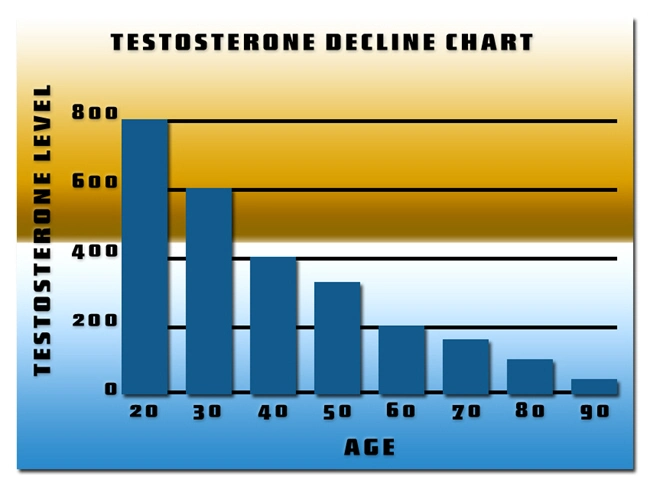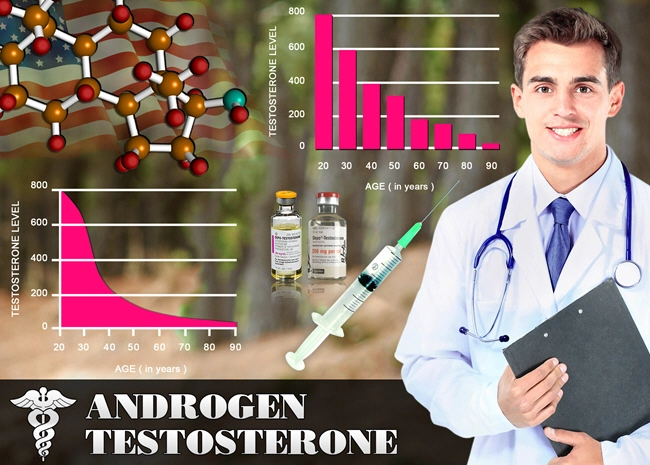
Introduction
Testosterone, the primary male sex hormone, plays a crucial role in various physiological processes, including the regulation of blood glucose levels. Recent studies have illuminated a concerning association between low testosterone levels and the risk of developing insulin resistance, a precursor to type 2 diabetes. This article delves into the intricate relationship between these two conditions, focusing on the implications for American men.
Understanding Testosterone and Its Functions
Testosterone is not only pivotal for male reproductive health but also influences muscle mass, bone density, and fat distribution. Moreover, it has a significant impact on metabolic health, including insulin sensitivity. As men age, testosterone levels naturally decline, which can lead to a variety of health issues, including metabolic syndrome.
The Connection Between Low Testosterone and Insulin Resistance
Insulin resistance occurs when the body's cells become less responsive to insulin, a hormone that regulates blood sugar levels. This condition can lead to elevated blood glucose levels and eventually type 2 diabetes. Research has shown that men with lower testosterone levels are at a higher risk of developing insulin resistance. The exact mechanisms behind this association are still being explored, but it is believed that testosterone helps maintain insulin sensitivity by influencing fat distribution and muscle mass.
Epidemiological Data in American Men
In the United States, the prevalence of low testosterone and insulin resistance is a growing concern. According to recent epidemiological studies, approximately 40% of men over the age of 45 have low testosterone levels, and this number is expected to rise. Concurrently, the incidence of insulin resistance and type 2 diabetes is also on the rise, with significant implications for public health.
Clinical Implications and Management
For American men, understanding the link between low testosterone and insulin resistance is crucial for preventive healthcare. Men with low testosterone levels should be screened for insulin resistance and vice versa. Lifestyle modifications, such as regular exercise and a balanced diet, can help mitigate the risks associated with both conditions. In some cases, testosterone replacement therapy may be considered, but this should be approached with caution and under medical supervision due to potential side effects.
The Role of Lifestyle and Diet
Diet and lifestyle play a pivotal role in managing both low testosterone and insulin resistance. A diet rich in nutrients that support testosterone production, such as zinc and vitamin D, can be beneficial. Additionally, regular physical activity, particularly resistance training, can help improve insulin sensitivity and boost testosterone levels. American men are encouraged to adopt a holistic approach to health, focusing on both diet and exercise to combat these interrelated conditions.
Future Research Directions
The relationship between low testosterone and insulin resistance is a burgeoning field of research. Future studies should focus on elucidating the underlying mechanisms and exploring potential therapeutic interventions. Longitudinal studies tracking the progression of these conditions in American men could provide valuable insights into effective prevention and management strategies.
Conclusion
The association between low testosterone and insulin resistance poses a significant health challenge for American men. By understanding this link, healthcare providers can better tailor preventive and therapeutic strategies. As research continues to evolve, it is imperative for men to stay informed and proactive about their health, particularly as they age. Embracing a healthy lifestyle and seeking regular medical check-ups can help mitigate the risks associated with these conditions, ultimately leading to improved overall well-being.
Contact Us Today For A Free Consultation
Dear Patient,
Once you have completing the above contact form, for security purposes and confirmation, please confirm your information by calling us.
Please call now: 1-800-380-5339.
Welcoming You To Our Clinic, Professor Tom Henderson.

- Environmental Toxins Linked to Low Testosterone in American Men: Impacts and Mitigation Strategies [Last Updated On: February 28th, 2025] [Originally Added On: February 28th, 2025]
- Low Testosterone: Symptoms, Risks, and Comprehensive Management Strategies for American Males [Last Updated On: March 17th, 2025] [Originally Added On: March 17th, 2025]
- Alcohol's Impact on Testosterone: Risks and Strategies for American Men [Last Updated On: March 17th, 2025] [Originally Added On: March 17th, 2025]
- Low Testosterone's Impact on Muscle Mass and Strength in American Males [Last Updated On: March 17th, 2025] [Originally Added On: March 17th, 2025]
- Chronic Illnesses and Low Testosterone: Impacts and Management in American Males [Last Updated On: March 19th, 2025] [Originally Added On: March 19th, 2025]
- Low Testosterone's Impact on Cognitive Function in American Men: Risks and Interventions [Last Updated On: March 19th, 2025] [Originally Added On: March 19th, 2025]
- Low Testosterone in American Men: Impact on Energy and Treatment Options [Last Updated On: March 19th, 2025] [Originally Added On: March 19th, 2025]
- Vitamin D's Role in Boosting Testosterone Levels in American Men: A Comprehensive Overview [Last Updated On: March 20th, 2025] [Originally Added On: March 20th, 2025]
- Economic Burden of Low Testosterone on American Men's Health and Healthcare System [Last Updated On: March 20th, 2025] [Originally Added On: March 20th, 2025]
- Low Testosterone and Mood Disorders: Impacts and Management for American Men [Last Updated On: March 21st, 2025] [Originally Added On: March 21st, 2025]
- Weight Loss Boosts Testosterone: Strategies for American Males with Low T [Last Updated On: March 21st, 2025] [Originally Added On: March 21st, 2025]
- Low Testosterone and Diabetes: Interlinked Challenges and Management Strategies for Men's Health [Last Updated On: March 21st, 2025] [Originally Added On: March 21st, 2025]
- Low Testosterone Effects on Skin Health in American Men: Causes and Solutions [Last Updated On: March 22nd, 2025] [Originally Added On: March 22nd, 2025]
- Managing Low Testosterone in Aging American Men: Symptoms, Treatments, and Holistic Approaches [Last Updated On: March 22nd, 2025] [Originally Added On: March 22nd, 2025]
- Low Testosterone and Osteoporosis: Risks, Diagnosis, and Management in American Males [Last Updated On: March 22nd, 2025] [Originally Added On: March 22nd, 2025]
- Boosting Testosterone in American Men: The Power of Physical Activity and Lifestyle [Last Updated On: March 23rd, 2025] [Originally Added On: March 23rd, 2025]
- Low Testosterone and Prostate Health: Understanding Risks and Management Strategies [Last Updated On: March 23rd, 2025] [Originally Added On: March 23rd, 2025]
- Low Testosterone and Hair Loss: Mechanisms and Management in American Males [Last Updated On: March 23rd, 2025] [Originally Added On: March 23rd, 2025]
- Low Testosterone's Impact on Immune Function in American Males: Insights and Strategies [Last Updated On: March 23rd, 2025] [Originally Added On: March 23rd, 2025]
- Low Testosterone: Symptoms, Impact, and Treatment Options for American Men [Last Updated On: March 23rd, 2025] [Originally Added On: March 23rd, 2025]
- Medications Impacting Testosterone: What American Men Need to Know and Manage [Last Updated On: March 24th, 2025] [Originally Added On: March 24th, 2025]
- Sleep Apnea's Impact on Testosterone Levels in American Males: A Comprehensive Analysis [Last Updated On: March 24th, 2025] [Originally Added On: March 24th, 2025]
- Low Testosterone's Impact on American Males' Body Composition and Health [Last Updated On: March 24th, 2025] [Originally Added On: March 24th, 2025]
- Low Testosterone and Heart Disease Risk in American Men: Current Insights and Interventions [Last Updated On: March 24th, 2025] [Originally Added On: March 24th, 2025]
- Chronic Pain and Low Testosterone: A Critical Health Issue for American Males [Last Updated On: March 24th, 2025] [Originally Added On: March 24th, 2025]
- Herbal Supplements for Low Testosterone: Benefits and Considerations for American Men [Last Updated On: March 24th, 2025] [Originally Added On: March 24th, 2025]
- Environmental Estrogens and Declining Testosterone in American Males: A Public Health Concern [Last Updated On: March 25th, 2025] [Originally Added On: March 25th, 2025]
- Low Testosterone's Impact on Emotional Wellbeing in American Men: Insights and Guidance [Last Updated On: March 25th, 2025] [Originally Added On: March 25th, 2025]
- Dietary Impact on Testosterone Levels in American Men: Insights and Recommendations [Last Updated On: March 25th, 2025] [Originally Added On: March 25th, 2025]
- Managing Low Testosterone in Aging Men: Symptoms, Treatments, and Lifestyle Strategies [Last Updated On: March 25th, 2025] [Originally Added On: March 25th, 2025]
- Zinc's Role in Boosting Testosterone Levels in Aging American Men [Last Updated On: March 25th, 2025] [Originally Added On: March 25th, 2025]
- Chronic Inflammation's Impact on Testosterone Levels in American Males [Last Updated On: March 25th, 2025] [Originally Added On: March 25th, 2025]
- Testosterone's Role in Male Libido: Understanding, Diagnosing, and Treating Low Levels [Last Updated On: March 25th, 2025] [Originally Added On: March 25th, 2025]
- Low Testosterone and Depression in American Men: Links, Impacts, and Management Strategies [Last Updated On: March 25th, 2025] [Originally Added On: March 25th, 2025]
- Low Testosterone and Metabolic Syndrome: Risks and Strategies for American Men [Last Updated On: March 26th, 2025] [Originally Added On: March 26th, 2025]
- Genetic Factors in Low Testosterone Among American Males: Insights and Implications [Last Updated On: March 26th, 2025] [Originally Added On: March 26th, 2025]
- Smoking's Impact on Testosterone Levels in American Men: A Comprehensive Analysis [Last Updated On: March 26th, 2025] [Originally Added On: March 26th, 2025]
- Low Testosterone and Thyroid Disorders: Exploring Risks and Treatment in American Men [Last Updated On: March 26th, 2025] [Originally Added On: March 26th, 2025]
- Low Testosterone and Anemia: Impacts and Management in American Men [Last Updated On: March 26th, 2025] [Originally Added On: March 26th, 2025]
- Shift Work's Impact on American Men's Testosterone Levels and Health [Last Updated On: March 26th, 2025] [Originally Added On: March 26th, 2025]
- Liver Health and Testosterone: Vital Connections and Management Strategies for American Men [Last Updated On: March 26th, 2025] [Originally Added On: March 26th, 2025]
- Hormonal Imbalance and Low Testosterone: Causes, Symptoms, and Treatment Options for American Males [Last Updated On: March 27th, 2025] [Originally Added On: March 27th, 2025]
- Chronic Stress and Low Testosterone: Impacts and Strategies for American Men [Last Updated On: March 27th, 2025] [Originally Added On: March 27th, 2025]
- Respiratory Health's Impact on Testosterone Levels in American Males: Management Strategies [Last Updated On: March 28th, 2025] [Originally Added On: March 28th, 2025]
- Low Testosterone Linked to Increased Kidney Disease Risk in American Men [Last Updated On: March 28th, 2025] [Originally Added On: March 28th, 2025]
- Low Testosterone Linked to Increased Autoimmune Disease Risk in American Men [Last Updated On: March 28th, 2025] [Originally Added On: March 28th, 2025]
- Nutritional Deficiencies Impacting Testosterone Levels in American Males: Zinc, Vitamin D, Magnesium [Last Updated On: March 29th, 2025] [Originally Added On: March 29th, 2025]
- Low Testosterone Linked to Neurological Disorders in American Men: Research and Implications [Last Updated On: March 30th, 2025] [Originally Added On: March 30th, 2025]
- Gut Microbiome's Impact on Testosterone Levels in American Males: A Comprehensive Review [Last Updated On: March 30th, 2025] [Originally Added On: March 30th, 2025]
- Dental Health's Impact on Testosterone Levels in American Males: Emerging Insights [Last Updated On: March 31st, 2025] [Originally Added On: March 31st, 2025]
- Low Testosterone Linked to Dermatological Issues in American Men: Research and Management [Last Updated On: March 31st, 2025] [Originally Added On: March 31st, 2025]
- Low Testosterone Linked to Increased Eye Disorder Risk in American Men [Last Updated On: March 31st, 2025] [Originally Added On: March 31st, 2025]
- Reproductive Health's Impact on Testosterone Levels in American Males: A Comprehensive Analysis [Last Updated On: April 1st, 2025] [Originally Added On: April 1st, 2025]
- Low Testosterone Linked to Musculoskeletal Disorders in American Men: Interventions and Insights [Last Updated On: April 2nd, 2025] [Originally Added On: April 2nd, 2025]
- ENT Health and Testosterone: Managing Conditions to Boost Hormonal Balance in Males [Last Updated On: April 4th, 2025] [Originally Added On: April 4th, 2025]
- Low Testosterone and Urological Health: Risks, Detection, and Management Strategies [Last Updated On: April 5th, 2025] [Originally Added On: April 5th, 2025]
- Low Testosterone Linked to Hematological Risks in American Men: Insights and Management [Last Updated On: April 5th, 2025] [Originally Added On: April 5th, 2025]
- Low Testosterone Linked to Higher Infection Risk in American Men: Research Insights [Last Updated On: April 6th, 2025] [Originally Added On: April 6th, 2025]
- Understanding and Managing Low Testosterone: A Holistic Endocrine Approach [Last Updated On: April 6th, 2025] [Originally Added On: April 6th, 2025]
- Immune System's Role in Testosterone Levels: Impacts and Interventions for American Males [Last Updated On: April 8th, 2025] [Originally Added On: April 8th, 2025]
- Low Testosterone Linked to Increased Psychiatric Risks in American Men: Mechanisms and Implications [Last Updated On: April 9th, 2025] [Originally Added On: April 9th, 2025]
- Low Testosterone and Surgical Risks in American Men: Implications and Recommendations [Last Updated On: April 10th, 2025] [Originally Added On: April 10th, 2025]
- Trauma's Impact on Testosterone Levels in American Males: Clinical Insights and Management [Last Updated On: April 10th, 2025] [Originally Added On: April 10th, 2025]
- Rheumatological Conditions and Low Testosterone: Impacts and Management Strategies [Last Updated On: April 11th, 2025] [Originally Added On: April 11th, 2025]
- Cancer's Impact on Testosterone Levels in American Males: Mechanisms and Management [Last Updated On: April 13th, 2025] [Originally Added On: April 13th, 2025]
- Testosterone Levels and Wound Healing in American Males: Impacts and Management Strategies [Last Updated On: April 14th, 2025] [Originally Added On: April 14th, 2025]
- Low Testosterone and Vascular Disorders: Risks, Mechanisms, and Management in American Men [Last Updated On: April 14th, 2025] [Originally Added On: April 14th, 2025]
- Anesthetics' Impact on Testosterone: Management Strategies for American Males [Last Updated On: April 14th, 2025] [Originally Added On: April 14th, 2025]
- Low Testosterone Linked to Increased Genetic Disorder Risk in American Men [Last Updated On: April 15th, 2025] [Originally Added On: April 15th, 2025]
- Early Life Health Factors Impact Testosterone Levels in American Males [Last Updated On: April 15th, 2025] [Originally Added On: April 15th, 2025]
- Low Testosterone in American Men Linked to Pediatric Disorders in Offspring [Last Updated On: April 16th, 2025] [Originally Added On: April 16th, 2025]
- Low Testosterone and Geriatric Risks in American Men: Detection and Management Strategies [Last Updated On: April 16th, 2025] [Originally Added On: April 16th, 2025]
- Prenatal Health Impacts on Testosterone Levels in American Males: Insights and Management [Last Updated On: April 16th, 2025] [Originally Added On: April 16th, 2025]
- Low Testosterone Linked to Increased Allergic Reactions in American Men: Emerging Insights [Last Updated On: April 17th, 2025] [Originally Added On: April 17th, 2025]
- Low Testosterone Linked to Congenital Disorders in American Men: Research Insights [Last Updated On: April 18th, 2025] [Originally Added On: April 18th, 2025]
- Neonatal Health's Impact on Testosterone Levels in American Males: A Comprehensive Analysis [Last Updated On: April 18th, 2025] [Originally Added On: April 18th, 2025]
- Occupational Health Impacts on Testosterone Levels in American Men: Stress, Work Demands, and Environment [Last Updated On: April 19th, 2025] [Originally Added On: April 19th, 2025]









